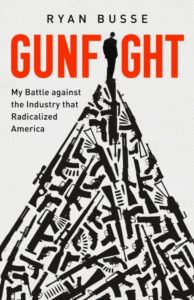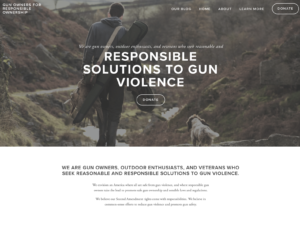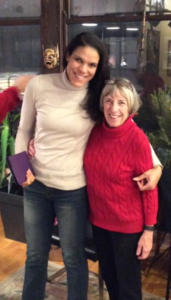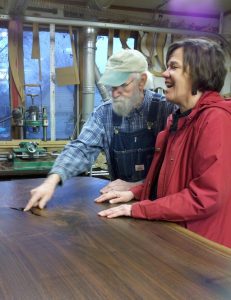Mondays with Mike: Oh My! Oh My! Oh screw omicron
November 29, 2021 • 6 Comments • Posted in Mike Knezovich, Mondays with Mike, UncategorizedWe had a great Thanksgiving, entertaining a neigborhood friend with several lamb chops, Greek smashed potatoes, and green beans.
Speaking of Greek: omicron. It’s worrisome. Or it’s not worrisome. It’s tiresome, for sure. And covid’s not going anywhere.
At least we don’t have a dickhead president calling it the African virus. Thank goodness for small favors.
As readers know, I got real sick in 2020. I’ve had two shots and a booster. I’m living my life with the idea that I’m not bulletproof, but close. I’m pretty sure the spiky little bastard has no chance with me. But no one can know. We’re all doing our best.
Except for the selfish, self-centered assholes who don’t get vaccinated. Getting the vaccine is the one solid thing we can do for ourselves and for people we care about. You might feel bad for a day. I did with each of two shots. But I had no effects from the booster. Doing it makes a difference. I had four uncles that served in WWII. This is small.
And you don’t get it just for you. Or your family (though you should). Or your friends (though you should). You do it for your country. Not doing so is unpatriotic. You do it for humankind. It’s not about you. It has nothing to do with rights. It has to do with responsibility.
Here’s something I learned: Lots of people have been on the rolls to receive lung and other organ transplants. Cystic fibrosis, and more. Many of these people need organ transplants for reasons entirely outside of their control. But now they’re competing with people who had a choice and didn’t get vaccinated and ended up needing organs.
For good reason, there are no moral judgments about who gets organs—it’s about medical need..
Good reasons that are enforced by better people than me.



 Tomorrow night, Thursday, November 18, 2021, I will be one of four women with disabilities on an hourlong free Zoom panel sponsored by the Skokie Public Library:
Tomorrow night, Thursday, November 18, 2021, I will be one of four women with disabilities on an hourlong free Zoom panel sponsored by the Skokie Public Library: